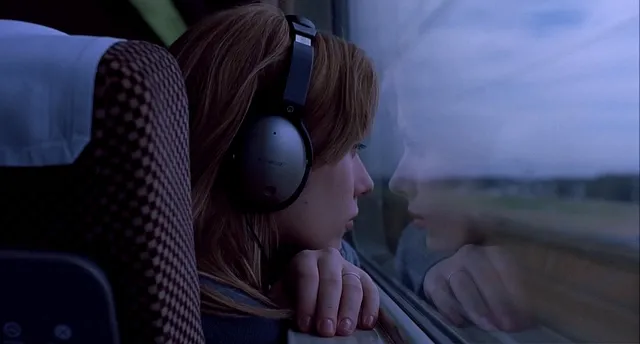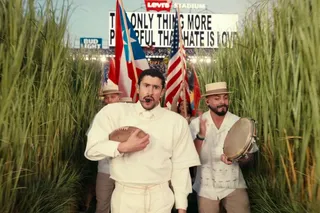
College is a formative time for many people. For me, it's when my love of writing was molded and formed. I launched my first real blog in college on my fancy domain (which I still use). It's when I started writing, but my origin story started with a class registration.
I wouldn't say I came to writing naturally. Freshmen Comp was a required class, and while there were several normal (see: boring) versions of the class, I came across the unique Writing For World Travelers option. It met the Freshmen Comp credit and fit into my schedule. As a bonus, it seemed interesting.
Ironically, the class met in one of the least interesting classrooms possible, tucked in the basement of the English building. It was in that boring classroom that I learned the art of personal essays. Writing was fun! And people liked my stories! I was hooked.
Our lives and experiences generally fuel our art. It's one of the most common forms of writing advice and was the entire point behind Writing For World Travelers. But in college, I discovered that art can also inspire our lives.
When I look back at my four years at school, a lot of the time is marked by the movies I watched. I had a lot of friends in film school, and film culture bled into my daily routine.
Movies like Adaptation and Stranger Than Fiction inspired me to continue writing and telling stories. Those movies and their strange, quirky stories made me want to put words on the page. It didn't really matter what words; it was more about the act of writing. I'll still watch one of those today when I really get stuck, and it usually helps.
Lost in Translation was also imprinted on my brain during this period of my life. The story of a disenchanted millennial and a stuck boomer finding themselves while literally getting lost in Tokyo just spoke to me.
I wanted to go to that place. I wanted to live in that story. I spent hours discussing what Bill Murray might have said to Scarlett Johansson at the end of the movie and looked up exactly what hotel and lounge serves as the film's primary setting (it was the Park Hyatt).
My desire to visit Japan largely began with that movie and festered for years. About a decade ago, when preparing for an actual trip to the country, I rewatched Lost in Translation. Not to look for travel tips but to fuel the flame of inspiration once again.
Earlier this year, inspiration struck again. I was watching Shōgun and Tokyo Vice and both started tapping into different parts of my brain. Shōgun led me to learn more about Japan's history and the smaller, rural towns that still have architecture inspired by that era. Tokyo Vice reminded me of the magic of a city with 14 million people. There are unique lives and stories everywhere you look.
When we sit down to create something, we will never know all the unique ways it will strike people. Lost in Translation and Tokyo Vice are not travel documentaries, but they inspired me to travel. Adaptation is, ironically, about writer's block, and it never fails to inspire me to write.
Inspiration is this magical thing that happens somewhere in our brains when we interact with something powerful. It strikes everyone differently and I hope you have something that can reliably provide inspiration -- that secret weapon you can return to when you need to visit the muse. And if something you create becomes that magic for someone else? What a freaking honor! This, right here, is the true power of art.
Do you have something that strikes inspiration? Let me know what it is. Let's talk!
Speaking of Tokyo Vice...
After watching the amazing TV show, I read the memoir that inspired it all (fitting for today's topic, I know). Jake Adelstein is an American reporter on the Tokyo crime beat for a major Japanese newspaper.
In the early chapters, Adelstein shares some advice he receives from a veteran reporter after being hired. According to the book, there were drinks involved, which makes me wonder how much of this advice is embellished. Either way, the advice is so, so good.
There are eight rules of being a good reporter, Jake.
One. Don't ever burn your sources. If you can't protect your sources, no one will trust you. All scoops are based on the understanding that you will protect the person who gave you the information. That's the alpha and omega of reporting. Your source is your friend, your lover, your wife, and your soul. Betray your source, and you betray yourself. If you don't protect your source, you're not a journalist. You're not even a man.
Two. Finish a story as soon as possible. The life of news is short. Miss the chance, and the story is dead or the scoop is gone.
Three. Never believe anyone. People lie, police lie, even your fellow reporters lie. Assume that you are being lied to, and proceed with caution.
Four. Take any information you can get. People are good and bad. Information is not. Information is what it is, and it doesn't matter who gives it to you or where you steal it. The quality, the truth of the information, is what's important.
Five. Remember and persist. Stories that people forget come back to haunt them. What may seem like an insignificant case can later turn into a major story. Keep paying attention to an unfolding investigation, and see where it goes. Don't let the constant flow of new news let you forget about the unfinished news.
Six. Triangulate your stories, especially if they aren't an official announcement from the authorities. If you can verify information from three different sources, odds are good that the information is good.
Seven. Write everything in a reverse pyramid. Editors cut from the bottom up. The important stuff goes on top, the trivial details go to the bottom. If you want your story to make it to the final edition, make it easy to cut.
Eight. Never put your personal opinions into a story; let someone else do it for you. That's why experts and commentators exist. Objectivity is a subjective thing.
And that's it.




